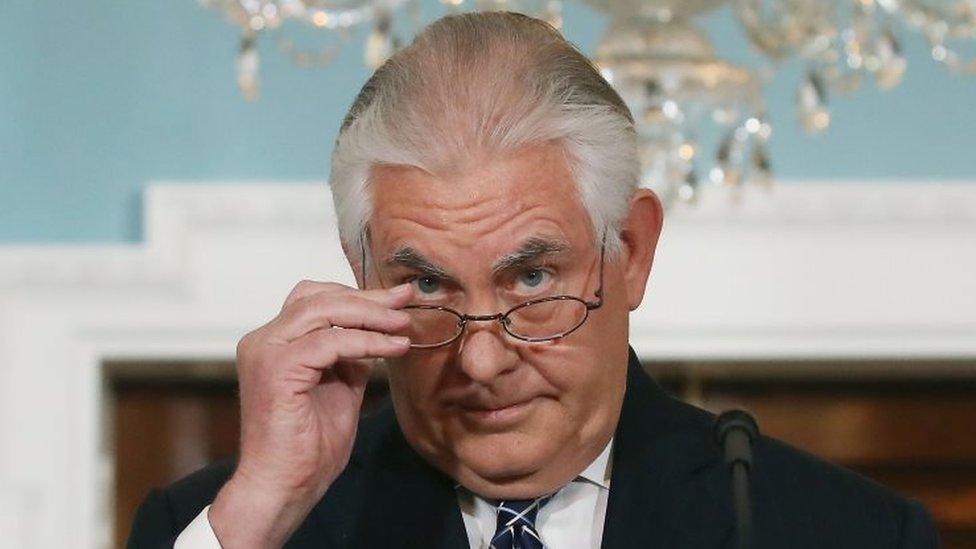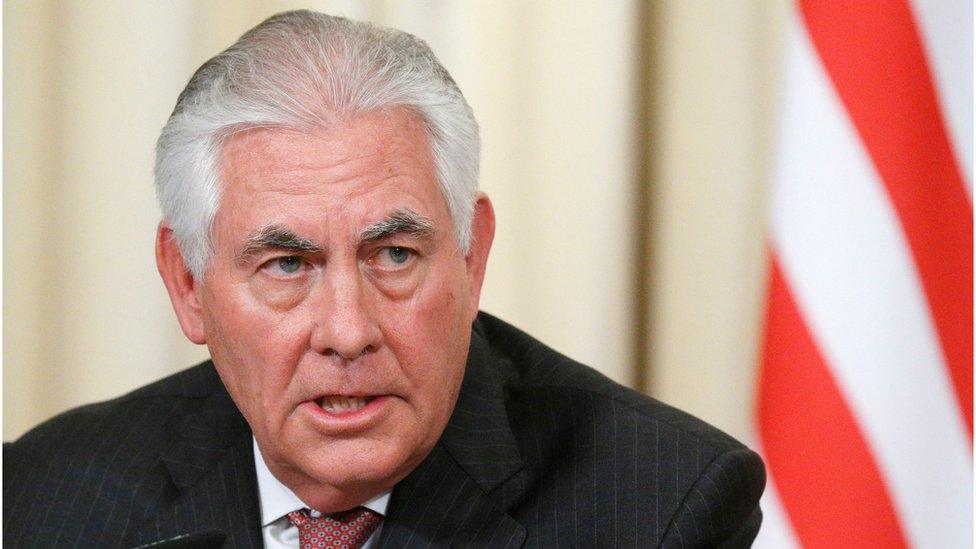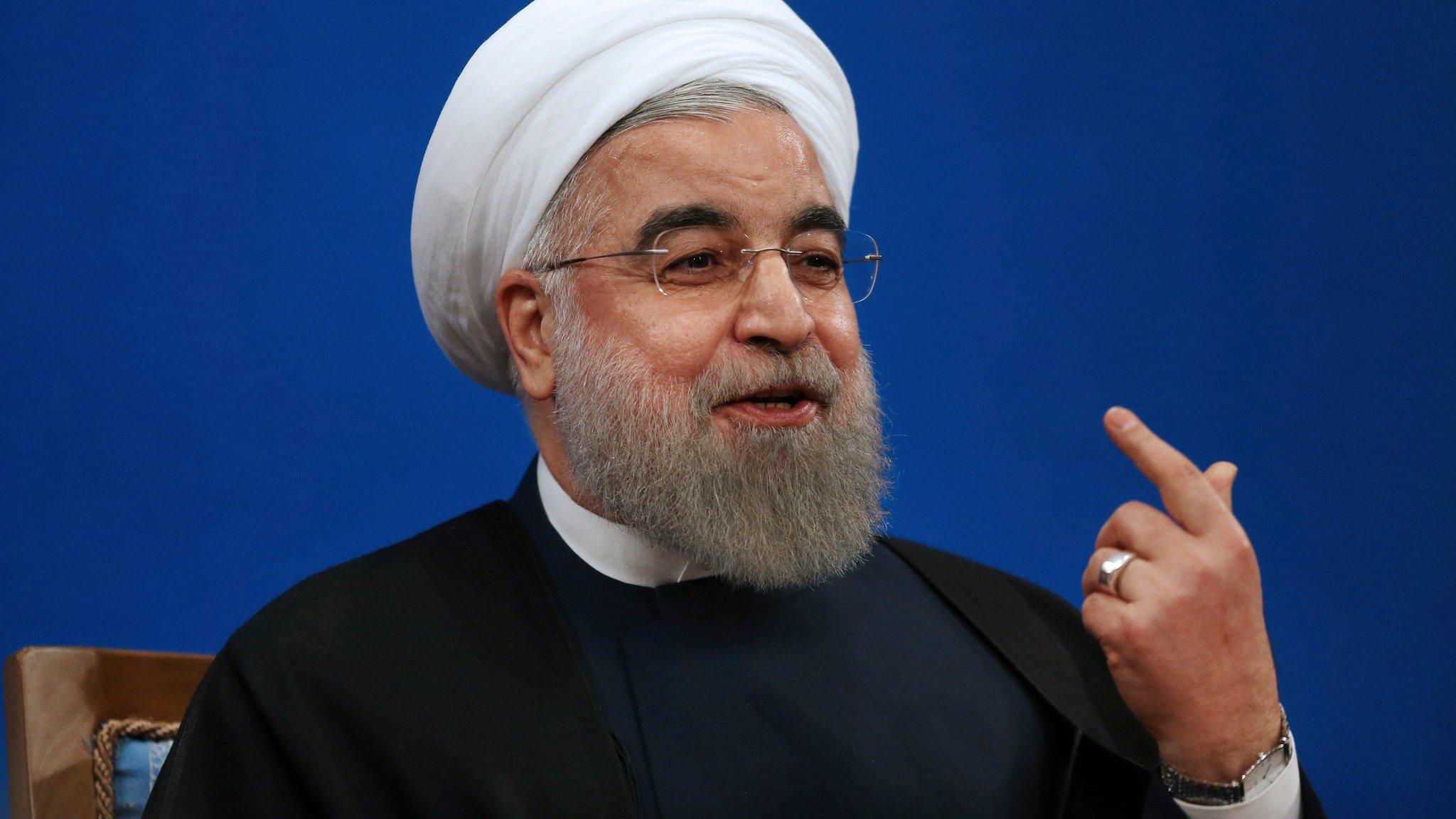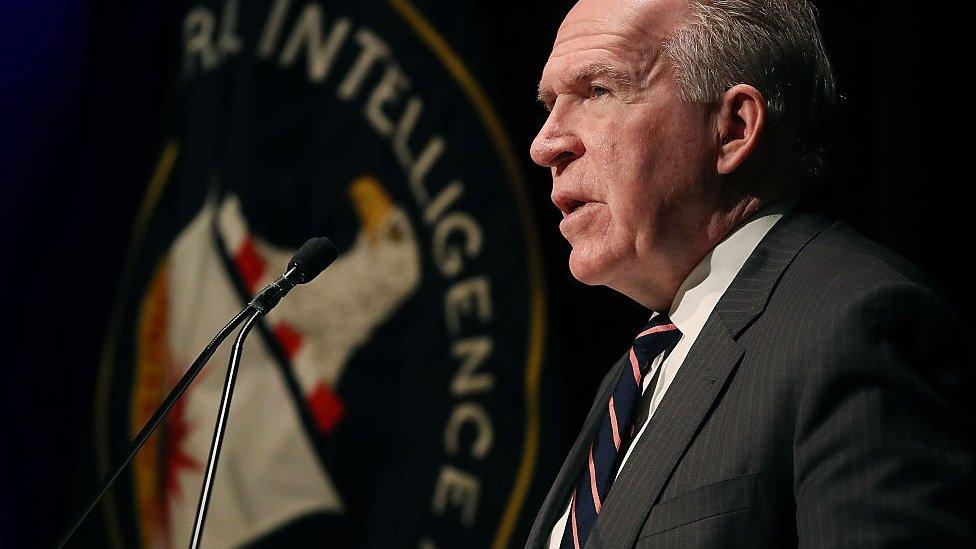Trumplomacy: US raises stakes over Iran nuclear deal
- Published

Rex Tillerson dismissed the nuclear deal as a short-term effort to "buy off a power who has nuclear ambitions"
In announcing a broad review of Iran policy the Trump administration has not jettisoned the nuclear deal.
But Rex Tillerson has come pretty close to saying the agreement is not worth keeping, even though he's had to admit it's working.
This week the secretary of state informed congress that Tehran is keeping its side of the bargain to restrict its nuclear programme in exchange for the lifting of sanctions, which he's required to confirm every 90 days.
In spoken remarks, though, he talked only of Iran's bad behaviour and linked that to the future of the deal - a message that will resonate far more on Capitol Hill and to which it was probably aimed.
Former President Barack Obama would have agreed with all the charges: that Iran is a state sponsor of terrorism, that it supports proxies which undermine US interests in the region, that it's hostile to Israel and that its ballistic missile tests challenge UN Security Council prohibitions.
But Mr Obama kept those issues separate from the nuclear agreement, which would have been impossible to achieve without that narrow focus.
Mr Tillerson, on the other hand, called this a mistaken approach and said the review would take a comprehensive look at all of the threats posed by Iran.
He also gave the deal itself short shrift.
He said it delayed rather than blocked Iran's goal of becoming a nuclear state, ignoring arguments even by critics that it has reduced a significant security threat for now.
Iran, for its part, continues to deny it was ever trying to develop nuclear weapons.
And the secretary of state raised the stakes by bringing in comparisons to North Korea.
He dismissed the agreement as a short-term effort to "buy off a power who has nuclear ambitions" that would backfire in the long term, the kind of approach that he said failed with Pyongyang.
Indeed, "an unchecked Iran has the potential to travel the same path as North Korea," he said. "The Trump administration has no intention of passing the buck to a future administration on Iran."
That doesn't necessarily mean it will "tear up" the deal, which was agreed with five other world powers.
More likely, it would pursue the strictest enforcement possible, in particular by increasing pressure on the Islamic Revolutionary Guard Corps., external
In parallel, there is growing bipartisan support in Congress for additional sanctions over Iran's ballistic missile programme, human rights violations and support for terrorist groups.
Such an approach might not violate the letter of US commitments but could still jeopardize the agreement.
Tehran would almost certainly accuse the Trump administration of non-compliance and might eventually decide to withdraw.
- Published19 April 2017

- Published17 January 2017

- Published30 November 2016

- Published14 July 2016
